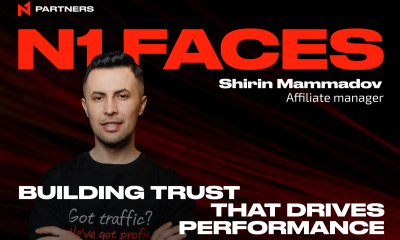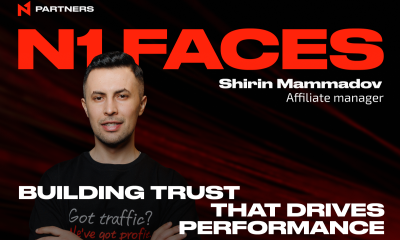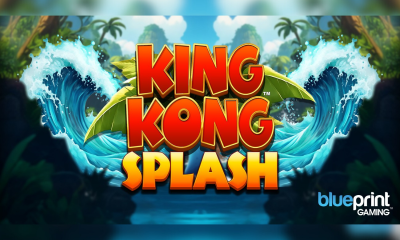eSports
Exclusive Q&A w/ Gary Denham, founder and CEO of Wamba Technologies and Gamer’s Oasis
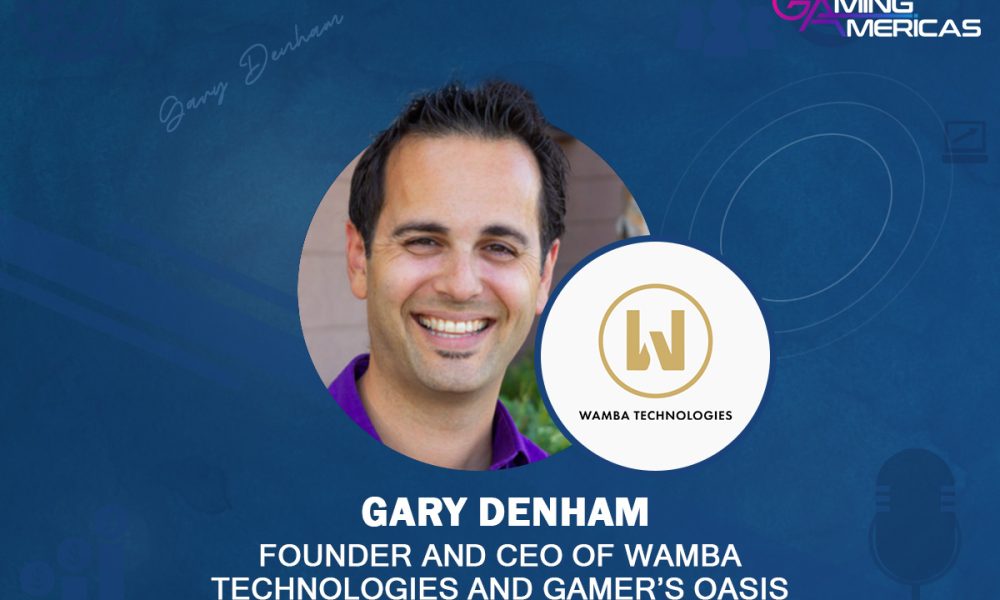
Gary, as the CEO and founder of Wamba Technologies, can you shed some light on the inspiration behind developing the patented technology for “in-game wagering” in skill-based video games?
Right now there are approximately 500 million people around the world participating in Esports. These are people who are earning money by competing in video games. Unfortunately, the vast majority of these people are not competing online when money is involved because of the anonymity and the rampant cheating anonymity causes. Only the best are able to compete online and actually make money. Instead, the majority of gamers are traveling to physical locations and competing “in person” where opponents and skill levels can be verified. What’s crazy to me is that down to every last man, woman, and child, these people DO compete against each other online for fun with the very same games that they are traveling to compete in for money. This shows us that these players desire to compete online, however they just don’t have a safe, user-friendly option with which to do so. This very issue is what inspired us to build a product that will give users that online, “compete-from-my-own-home” experience that they are looking for where they can pay an entry fee online, compete, and win money right then and there.
What’s surprising is that most real money online video game competitions are still operating on the honor system which has led to a lot of cheating. Warzone is a great example of this. Activision had to ban over 100,000 players from Warzone in a single week and they were not even competing for money. That was just the “for fun” play. Simply put, the honor system doesn’t work. For me, the most prominent indicator of this is seeing a marketplace with 500 million users that can’t seem to clear $2B in annual revenue going on 10 plus years now. That says a lot.
Our technology is called Gamers Oasis. It will allow gamers of all skill levels to compete against other players, who are at their same skill level, right from their phones, where they pay an entry fee, compete, and win money back. Gamers Oasis won’t just be for professional players either. Very much to the contrary, the basic idea is that anybody, regardless of skill level, can join, compete, and have a fair and reasonable chance of winning large monetary prizes. Our platform will give beginners the opportunity to compete for thousands of dollars and actually have a reasonable chance of winning, opening up the industry to something that previously was only available to the best of the best, the professionals.
With your extensive experience in the Esports and gaming industry, how do you perceive the current revenue challenges despite the massive user base? What factors contribute to this disparity?
There are a number of reasons for this disparity. Before I answer, I want to point out that there is a comparable industry that has done phenomenally well and has not had to make any excuses for their revenue. Online poker in the United States had a mere 2 million players and was generating $900M a year in the US in 2008. That is compared to our Esports market with 500M players generating a mere $1.38B last year. The global Esports market is 250 times larger than the US online poker market but only generated 50% more money than the poker market. That isn’t just a disparity. That is a tragedy. What is more of a tragedy though is I’ve been to several Esports conferences and most of the people I’ve seen seem to think they’ve accomplished something with these numbers. They are hi-fiving and patting each other on the back with congratulations. Maybe if more of their colleagues would be honest and just speak the truth, which is “hold up there cowboy. These numbers suck. Not only can we do better, but we must. What’s broken?”, then maybe they’d have already taken this market to where it should be. When it comes to players competing for money, developers need to start thinking like wagering entities rather than game development entities. If they had done THAT over the past 10 years, this industry would be a $100B a year industry right now. The good news is with what we are doing, with what FanDuel is doing, and with what others like us are working to do, I think the industry is beginning to find its way onto the right track to getting to where it can get to.
Originally, Esports consisted of single event competitions where players went to an event, paid an entry fee, competed, won their money, and that was it. From the Asteroids world championship tournament in 1980 until 30+ years later, that was Esports! But around 10 years ago, the large developers tried to reinvent the wheel to facilitate online Esports. Rather than sticking with the model that had existed for 30+ years at that point, the model that was proven and that worked, they abruptly tried to make online Esports like an actual sports league, like basketball or football, where players would compete for a season to win prizes at the end of the season rather than at individual events. They were trying to build a model where the professionals played and then audiences watched, and they generated revenue from the audience. While that can be a fine model in some circumstances, unfortunately, the reality is that this model is generating around $2.80 per participant, per year, through ad sales. That just doesn’t compare to that poker model featuring player values at closer to $450 per year domestically and around $205 per player per year globally. In a market where 3 billion people play video games, we want to focus on total inclusion and try to include as many of those players as possible. Whereas the current industry seems to be focused on creating viewers to watch “the best of the best”, we want to create players in everybody. You have to remember, every player is also a viewer. Don’t get me wrong, we will still be streaming everything and focusing on viewers as well, but that’s kind of my point. Our model gets all the same viewers, but exponentially more players at an exponentially more valuable “per player” rate of revenue.
Online poker got it right by featuring hundreds or even thousands of events, every day, fully automated, available 24/7, where the host company charges a fee every time a player buys into a competition. As a result of this model, online poker was generating around $450 per player per year in the United States as compared to the $2.80 per participant per year that the current Esports model is generating. In fact, a company by the name of Skillz followed a model similar to ours and, as a result, generated almost 25% of the global Esports revenue last year despite only having 0.8% of the players. That really says it all right there. That is a terrific real world example of what I am saying.
After 10 years of trying this league-based model for online Esports, game developers need to finally admit that it’s just not working. They need to stand up, say “this failed, and that’s ok. We learned from it”, and then get back to what we know has been proven. It is time to get back to the basics! Back in 1980, when the game “Asteroids” held a world championship tournament, they had the same player turnout as the largest World Series of Poker event in history which happened this year in 2023. More than 10,000 players showed up, in person, from around the globe! Single event tournaments where players pay an entry fee, compete, and can win money back right then and there is what players have always done and is what they want. They don’t want to have to wait 13 weeks to get paid at the end of a season. They don’t want to be forced to travel to compete in a real money tournament. They want simplicity and instant results. If developers will get back to that, utilizing today’s technology to make it online, automated, and available 24/7, they will make exponentially more money and turn this industry around on its head.
How does the introduction of “in-game wagering” capabilities potentially revolutionize the profitability landscape for Esports?
It changes everything. There is nothing else that comes remotely close to generating revenue like this model. If we can cause Esports to achieve comparable results as to online poker, and we can, then we are talking “per player per year” values skyrocketing to the $400 to $500 per year range. Compared to modern successful games clocking in at between $5 – $15 per player per year from ad sales and in-game purchasing, or current Esports values of around $2.80 per participant per year, there’s just no limit to the possibilities once this more profitable option becomes widespread. When games begin realizing the massive difference in returns by adding this feature and having it properly monetized, they will be able to spend a significantly larger amount of money on things that ultimately lead to a better player experience; Customer service, quality control, more aggressive beta testing leading to less bugs on launch, anti-cheating countermeasures which are truly effective, etc. When the difference is this significant, there may come a time where if a game does not feature this capability, it will be very difficult to compete with the quality of games which do due to all of the enhanced capabilities I just mentioned.
In your opinion, what are the ethical considerations when introducing wagering into skill-based video games, especially considering the diverse age demographics of players?
Wagering into skill-based video games has been done since 1980 when Asteroids had their first world championship and more than 10,000 players showed up to compete and hand their entry fees over. From that point in time until now, it has been available to all ages, though sometimes requiring parental consent for those under 16 or 18, depending on the region’s laws.
But when speaking of ethics as it pertains to the diverse age demographics of players, I would have to suggest that ethics do not play a part where age is concerned. Rather, ethics plays a part where skill level is concerned, regardless of age. To address this particular matter, the platform we are designing, “Gamers Oasis,” will match up players based on their skill level to ensure that regardless of your experience you still have a fair and reasonable chance of earning money by competing with us. Whether you are a phenomenal player or just plain out suck at your favorite game, it won’t matter. If we’ve done our job right, both players will have a fair chance of winning big money when competing on our platform. If this is accomplished, then I think we are satisfying all ethical issues here.
To address any concerns with age, kids competing with Esports has been a staple of the sport since its inception. In 2019, 16-year-old Kyle Giersdorf just won $3M competing in Fortnite. I think that the morality of kids competing is something that each family needs to decide for themselves. We live in a society of tech companies that have continuously and increasingly been imposing their vision of morality on the world around them. We want to make sure to stay away from that where this matter is concerned. If you do not want your child to compete, we will have parental safeguards in place to ensure that your wishes are supported and respected. And if you are ok with your child competing, well, we will accommodate that as well.
Esports has seen exponential growth in terms of viewership and participation in the past decade. How do you envision its trajectory in the next 5 years, especially in terms of revenue generation?
There is a lot of chaos where Esports is concerned and this has led to tremendous confusion. With our patent, we have an opportunity to seize a degree of control in this industry. Our desire is not to mold it to our beliefs, but rather to hold the industry true to what we have seen that it wants. Offering league and season based Esports play rather than the single event structure that players had become used to for over 30 years is a really good example of that. So, as we use our patent to get an automated system going where anyone, regardless of skill level, can sign up and enjoy the competition, we expect to see revenue generation going up exponentially throughout the industry as per player value increases alongside this exponential increase in user participation.
Lastly, could you share some insights on how Wamba Technologies plans to collaborate with game developers and Esports organizers to integrate and popularize the “in-game wagering” feature?
We patented the methodology of programming video games so that players could pay an entry fee, compete, and win money back over a computerized network. While we absolutely will offer this “in-game wagering” feature, considering that there are presently around 500 million people who are competing with video games to try and win money in real life, it doesn’t need popularization. I’d say it simply needs visibility.
We will be working with game developers and licensing our patent to them to ensure that more and more games offer this type of competition where players can pay an entry fee online, compete, and win money back. This will help create a degree of consistency across a wide range of games. We intend to eventually put together an advisory board consisting of representatives from the games offering this feature so that we can constantly have our finger on the pulse that is the lifeblood of this industry, the games themselves. We want to work with the developers to ensure that this industry gets to a point where the players are actually worth $400-$500 per player per year or more. Then, we can then focus on taking a significant portion of that money and putting it into things that will ultimately give gamers a better overall experience, things like R&D, security, customer service, anti-cheating, and more.
Brasil
Brasil ante una encrucijada: match-fixing e impuesto rechazado

El debate sobre el proyecto de ley brasileño contra el match-fixing de partidos dominó los titulares esta semana, exponiendo fracturas políticas más profundas sobre cómo el sector de las apuestas encaja dentro de las prioridades más amplias de política pública.
En un resultado políticamente negociado en la Cámara de Diputados, los legisladores avanzaron el paquete más amplio de seguridad pública mientras eliminaban un impuesto propuesto a los operadores de apuestas, comúnmente denominado “Cide-Bets”.
Introducido originalmente por el Senado, el mecanismo Cide-Bets habría impuesto un gravamen adicional sustancial — estimado en aproximadamente R$30.000 millones anuales — sobre los ingresos de las apuestas deportivas, destinado a financiar iniciativas de combate al crimen.
Su eliminación refleja una división estructural entre las ambiciones de seguridad pública y la cautela fiscal.
Si bien existe impulso político para fortalecer la legislación contra el crimen y las salvaguardas de integridad, persiste una clara resistencia a imponer mayores cargas tributarias a un mercado recientemente regulado que aún se encuentra en fase de consolidación.
El resultado ha generado interpretaciones contrapuestas.
Los defensores del impuesto original argumentaban que un sector de esta magnitud debería contribuir directamente al financiamiento de la seguridad pública.
Los críticos — incluidos sectores influyentes del ‘Centrão’ — consideraron la medida desproporcionada, advirtiendo que podría restringir la competencia, reducir el atractivo del mercado y, en última instancia, desviar la actividad hacia operadores offshore o no autorizados.
Para la industria, el mensaje es matizado.
La vía regulatoria sigue siendo operativa y políticamente viable; sin embargo, la dimensión fiscal de la regulación de las apuestas está lejos de resolverse.
Es probable que la tributación reaparezca como un punto central de tensión política a medida que se acerque el ciclo electoral de 2026 y aumenten las presiones sobre el gasto público.
Protección del jugador en el foco: autoexclusión y dinámicas de fraude
Más allá de la tributación, la arquitectura de protección al jugador en Brasil enfrenta un escrutinio creciente — no por ausencia regulatoria, sino por fricciones operativas y respuestas conductuales no previstas.
Tres meses después del lanzamiento de la Plataforma Centralizada de Autoexclusión del Gobierno Federal — operativa desde el 10 de diciembre de 2025.
O sea, lo que fue diseñado como un mecanismo unificado de mitigación de riesgos comienza a mostrar señales de explotación oportunista.
Según datos del Ministerio de Hacienda, más de 217.000 solicitudes de autoexclusión habían sido registradas a inicios de 2026, lo que indica un alto nivel de participación de los usuarios.
Sin embargo, operadores licenciados reportan un patrón emergente en el cual algunos apostadores presuntamente realizan apuestas de alto riesgo en el intervalo entre la solicitud de exclusión.
La implementación efectiva del bloqueo de la cuenta — proceso que la regulación permite ejecutar en un plazo de hasta 72 horas.
Una vez materializadas las pérdidas, se estarían presentando solicitudes de reembolso bajo el argumento de que el acceso debió haber sido suspendido de inmediato tras el registro.
Expertos jurídicos del sector advierten que esta brecha temporal está siendo instrumentalizada como una forma de arbitraje regulatorio, transformando efectivamente una herramienta de protección del consumidor en una estrategia de reembolso.
Las consecuencias incluyen:
– Pérdidas financieras para operadores licenciados
– Aumento de reclamaciones ante autoridades de defensa del consumidor (Procon)
– Crecimiento de litigios bajo la legislación de consumo
– Mayor incertidumbre jurídica y operativa
Gustavo Biglia, especialista regulatorio de Ambiel Bonilha Belfiore Teixeira Hanna Advogados, ha caracterizado el fenómeno como un caso de riesgo moral, en el cual un mecanismo diseñado para proteger a jugadores vulnerables es reutilizado para reclamaciones financieras oportunistas.
El problema estructural más amplio radica en la asimetría regulatoria.
La plataforma centralizada se aplica exclusivamente a operadores autorizados integrados al marco regulado brasileño.
Los sitios offshore ilegales permanecen completamente al margen.
Como resultado:
– Los operadores licenciados asumen costos de integración, exposición de cumplimiento y riesgo reputacional
– Los operadores ilegales continúan operando sin obligaciones equivalentes de bloqueo ni presión efectiva de supervisión
Este desequilibrio podría incentivar la migración hacia plataformas no licenciadas, socavando directamente el objetivo político de canalizar la actividad hacia entornos supervisados.
Además, el marco regulatorio brasileño concedió un período de adaptación sistémica de 90 días para la integración técnica de los operadores.
Sin embargo, se estarían presentando reclamaciones por transacciones realizadas dentro de esta ventana transitoria, lo que sugiere no una falla regulatoria, sino una explotación deliberada del calendario de implementación.
La controversia revela una tensión más profunda: la infraestructura de juego responsable se expande rápidamente.
Pero sin una aplicación sincronizada contra operadores ilegales y sin integración técnica en tiempo real, las herramientas bien intencionadas pueden convertirse en fuentes de fricción y exposición legal.
El debate ya no gira en torno a si Brasil cuenta con mecanismos de protección al jugador.
La cuestión es si dichos mecanismos son técnicamente resilientes, jurídicamente calibrados y competitivamente equilibrados.
SBC Summit Rio 2026: madurez del mercado y realidad operativa
En medio de estos debates políticos, el SBC Summit Rio 2026 — que se celebrará del 3 al 5 de marzo en Riocentro, Río de Janeiro — se perfila como el principal encuentro del sector este año.
A diferencia de ediciones anteriores, centradas en señalar oportunidades, esta edición se posiciona como una plataforma para el diálogo operativo y la resolución práctica de problemas.
SBC y sus socios han vinculado explícitamente la agenda a la gobernanza del juego responsable, desafíos operativos como el control del fraude en sistemas de pago instantáneo como PIX, cumplimiento publicitario y escenarios regulatorios futuros.
Una alianza estratégica con el Instituto Brasileño de Juego Responsable (IBJR) refuerza esta orientación, alineando la defensa del juego responsable con los objetivos más amplios de la industria y manteniendo en el centro del debate la protección del jugador y el combate al mercado ilegal.
Cientos de operadores, proveedores y reguladores estarán presentes.
Empresas internacionales de tecnología y plataformas como InPlaySoft y presentaciones de innovación en IA como BetConstruct AI ya confirmaron su participación, señalando que la tecnología, los datos y las estrategias de integración serán ejes centrales de la conversación.
La estructura del evento — que abarca liderazgo, pagos, estrategia de afiliados y espacios de networking — refleja un mercado en transición desde el optimismo regulatorio hacia el realismo comercial.
Tendencias subyacentes y mercado ilegal
Mientras el sector regulado desarrolla infraestructura y diálogo institucional, el mercado ilegal continúa siendo un desafío, con esfuerzos de fiscalización aún en evolución.
Brasil ya ha invertido en marcos tecnológicos — como laboratorios cibernéticos y acciones coordinadas entre agencias — para bloquear sitios no autorizados y reforzar redes de cumplimiento.
Sin embargo, el fraude y las operaciones ilegítimas continúan distorsionando la percepción de seguridad y eficacia.
E incluso pueden estimular la demanda de plataformas offshore, donde procesos de registro rápidos y controles laxos atraen a ciertos segmentos de apostadores.
La tensión es clara: las estructuras de supervisión y protección deben superar la agilidad de los operadores no autorizados, o correrán el riesgo de perder cuota de mercado y confianza del jugador.
Lo que esto significa hacia adelante
La convergencia de acontecimientos esta semana — volatilidad legislativa, debates sobre protección y una cumbre global de la industria — ofrece una instantánea de un mercado en proceso de maduración, aunque todavía inestable:
– Políticamente, reguladores y legisladores buscan preservar el marco regulatorio, pero son cautelosos ante la sobrecarga fiscal y los efectos no intencionados.
-Operativamente, herramientas como la autoexclusión y la protección de identidad están bajo presión, revelando brechas en la interacción entre seguridad, fraude y comportamiento del jugador.
-Estratégicamente, el SBC Summit Rio ofrece una oportunidad para alinear prioridades prácticas, desde gobernanza hasta infraestructura impulsada por IA, y definir una agenda compartida para 2026.
En esencia, el mercado de apuestas en Brasil no solo está creciendo — está siendo sometido a una prueba de resistencia en tiempo real.
La respuesta de operadores, reguladores y actores políticos en los próximos meses determinará no solo las trayectorias de ingresos, sino también la legitimidad y resiliencia de todo el ecosistema.
La fase de luna de miel ha terminado.
La fase de consolidación ha comenzado.
Y la manera en que se gestione esta transición definirá si Brasil se convierte en un modelo de regulación a gran escala o en un estudio de caso de aceleración prematura.
El Ministerio del Deporte de Brasil publica guía sobre eSports
En paralelo a los debates sobre tributación, integridad y protección al jugador, el Ministerio del Deporte de Brasil ha elevado formalmente a los eSports dentro del marco de política pública nacional mediante la publicación de su nueva guía institucional sobre deportes electrónicos.
Aunque el documento tiene un tono educativo, su relevancia política no debe subestimarse.
Por lo tanto, al definir los eSports dentro de un contexto oficial de política pública, el gobierno envía una señal de reconocimiento regulatorio y legitimidad sectorial a largo plazo.
Esto es relevante por tres razones.
Primero, refuerza la convergencia entre el gaming competitivo y los mercados regulados de apuestas.
A medida que madura el ecosistema brasileño de apuestas deportivas, las apuestas en eSports representan una vertical estructuralmente atractiva: audiencias digitales, alta frecuencia de interacción y potencial de monetización multiplataforma.
Un marco institucional más claro reduce ambigüedades legales y fortalece el argumento a favor de una supervisión estructurada.
Segundo, posiciona al Ministerio del Deporte — y particularmente a la Secretaría de Apuestas Deportivas y Desarrollo Económico del Deporte — como arquitecto activo de nuevas verticales deportivas digitales, sugiriendo que los eSports podrían integrarse progresivamente en discusiones sobre monitoreo de integridad, prevención de amaños y supervisión de mercados de apuestas.
Tercero, la guía contribuye a reequilibrar la narrativa.
En un momento en que el debate sobre apuestas suele centrarse en controversias fiscales y casos de fraude, el reconocimiento formal de los eSports destaca la dimensión de innovación y desarrollo económico del ecosistema.
En términos estratégicos, la publicación no altera de inmediato la mecánica del mercado.
Pero, fortalece la base institucional de un sector que probablemente ganará relevancia creciente para operadores, reguladores e inversores, especialmente ante nuevas definiciones regulatorias rumbo al ciclo electoral de 2026.
The post Brasil ante una encrucijada: match-fixing e impuesto rechazado appeared first on Americas iGaming & Sports Betting News.
bets
Regulatory crossroads: Anti-match-fixing bill and betting tax rejection

The Brazilian anti-match-fixing bill debate dominated headlines this week, exposing deeper political fault lines regarding how the betting sector fits into broader public policy priorities.
In a politically negotiated outcome in the Chamber of Deputies, lawmakers advanced the broader public security package while removing a proposed tax on betting operators, commonly referred to as “Cide-Bets.”
Originally introduced by the Senate, the Cide-Bets mechanism would have imposed a substantial additional levy — estimated at approximately R$30 billion annually — on sports betting revenues, earmarked to fund crime-fighting initiatives.
Its removal reflects a structural divide between public security ambitions and fiscal caution.
While there is political momentum to strengthen anti-crime legislation and integrity safeguards, there remains clear resistance to imposing heavier tax burdens on a newly regulated market that is still in a consolidation phase.
The outcome has generated contrasting interpretations.
Supporters of the original tax argued that a sector of this scale should contribute directly to public security funding.
Critics — including influential factions within the ‘Centrão’ — viewed the measure as disproportionate, warning it could constrain competition, reduce market attractiveness, and ultimately drive betting activity toward offshore or unlicensed operators.
For the industry, the message is nuanced. The regulatory pathway remains operational and politically viable; however, the fiscal dimension of betting regulation is far from settled.
Taxation is likely to reemerge as a central policy flashpoint as the 2026 electoral cycle approaches and public spending pressures intensify.
Player protection in the spotlight: Auto-exclusion and fraud dynamics
Beyond taxation, Brazil’s player protection architecture is facing heightened scrutiny — not due to regulatory absence, but because of operational friction and unintended behavioral responses.
Three months after the launch of the Federal Government’s Centralized Auto-Exclusion Platform — operational since December 10, 2025 — what was designed as a unified harm-mitigation mechanism is now encountering signs of opportunistic exploitation.
According to Ministry of Finance data, more than 217,000 auto-exclusion requests had been registered by early 2026, indicating substantial user engagement with the system.
However, licensed operators report an emerging pattern in which some bettors allegedly place high-risk wagers during the interval between submitting an exclusion request and the effective implementation of account blocking — a process that regulation allows to occur within 72 hours.
Once losses materialize, reimbursement claims are reportedly filed under the argument that access should have been suspended immediately upon registration.
Industry legal experts warn that this temporal gap is being instrumentalized as a form of regulatory arbitrage — effectively transforming a consumer protection tool into a reimbursement strategy.
The consequences include:
- Financial losses for licensed operators
- Increased complaints before consumer protection authorities (Procon)
- Rising litigation under consumer law
- Heightened legal and operational uncertainty
Gustavo Biglia, regulatory specialist at Ambiel Bonilha Belfiore Teixeira Hanna Advogados, has characterized the phenomenon as a case of moral hazard, in which a protection mechanism designed for vulnerable players is repurposed for opportunistic financial claims.
The broader structural issue lies in regulatory asymmetry.
The centralized platform applies exclusively to authorized operators integrated into Brazil’s regulated framework. Illegal offshore sites remain entirely unaffected.
As a result:
- Licensed operators absorb integration costs, compliance exposure and reputational risk
- Illegal operators continue operating without equivalent blocking obligations or enforcement pressure
This imbalance risks incentivizing migration toward unlicensed platforms — directly undermining the policy objective of channeling activity into supervised environments.
Additionally, Brazil’s regulatory framework granted a 90-day systemic adaptation period for operators to complete technical integration with the platform.
Yet reimbursement claims are reportedly being filed for transactions occurring within this transitional window, suggesting not regulatory failure, but deliberate exploitation of implementation timing.
The controversy illustrates a deeper tension:
Responsible gaming infrastructure is expanding rapidly — but without synchronized enforcement against illegal operators and real-time technical integration, well-intentioned tools can become vectors of friction and legal exposure.
The debate is no longer about whether Brazil has player protection mechanisms.
It is about whether those mechanisms are technically resilient, legally calibrated, and competitively balanced.
SBC Summit Rio 2026: market maturity and operational reality
Amid these policy debates, the SBC Summit Rio 2026 — kicking off March 3–5 at Riocentro in Rio de Janeiro — is shaping up as the definitive industry convening of the year.
Unlike early editions, which were largely about signalling opportunity, this year’s summit is positioned as a platform for operational dialogue and practical problem-solving.
SBC and partners have explicitly tied the agenda to responsible gaming governance, operational challenges such as fraud control in fast payment systems like PIX, advertising compliance, and future policy scenarios.
A strategic partnership with the Brazilian Institute for Responsible Gaming (IBJR) reinforces this orientation — aligning responsible gaming advocacy with broader industry objectives and ensuring that player protection and illegal-market combat remain central discussion themes.
Hundreds of operators, suppliers and regulators will be on the ground.
International technology and platform providers such as InPlaySoft and AI innovation showcases like BetConstruct AI are already confirming their participation, signalling that technology, data and integration strategies will be critical threads in the conference conversation.
The event’s structure — spanning leadership, payments, affiliate strategy and networking zones — reflects a market transitioning from regulatory optimism to commercial realism.
Underlying market trends and the illegal market
While the regulated sector builds infrastructure and dialogue, the illegal market remains a spectre, with enforcement efforts still evolving.
Brazil has previously invested in technological frameworks — such as cyber labs and coordinated agency action — to block unauthorized betting sites and tighten compliance networks.
That said, fraud and illegitimate operations continue to distort perceptions of safety and efficacy, and may in some cases cushion demand for offshore platforms, where rapid onboarding and lax safeguards attract certain segments of bettors.
The tension here is clear: enforcement and protection structures must outpace the fluidity of unauthorized operators, or risk ceding market share and player trust.
What this means going forward
This week’s congofluence of events — legislative flux, protection debates and a major global industry summit — presents a snapshot of a maturing but still unsettled market:
- Politically, Brazil’s regulators and legislators are protective of the regulatory framework but cautious about overtaxation and unintended market effects.
- Operationally, tools like auto-exclusion and identity protection are under pressure, revealing gaps in how safety mechanisms interact with fraud and player behaviour.
- Strategically, SBC Summit Rio offers a rare moment for stakeholders to align on practical priorities, from governance to AI-driven infrastructure, and to set a shared agenda for 2026.
In essence, Brazil’s betting market isn’t just growing — it is being stress-tested in real time, and how stakeholders respond in the coming months will shape not just revenue trajectories but the legitimacy and resilience of the entire ecosystem.
The honeymoon phase is over.
The consolidation phase has begun.
And how operators, regulators and political actors respond in the coming months will determine whether Brazil becomes a model of regulated scale — or a case study in premature acceleration.
Brazil’s Ministry of Sport publishes eSports guide
Alongside debates over taxation, integrity, and player protection, Brazil’s Ministry of Sport has formally elevated eSports within the national policy framework through the release of its new institutional guide on electronic sports.
While the document is educational in tone, its political significance should not be underestimated.
By defining eSports within an official public policy context, the government is signaling regulatory recognition and long-term sectoral legitimacy.
This matters for three reasons.
First, it reinforces the convergence between competitive gaming and regulated betting markets.
As Brazil’s sports betting ecosystem matures, eSports betting represents a structurally attractive vertical: digitally native audiences, high engagement frequency, and cross-platform monetization potential.
A clearer institutional framing reduces legal ambiguity and strengthens the case for structured oversight rather than prohibitionist reflexes.
Second, the move positions the Ministry of Sport — and particularly the Secretariat of Sports Betting and Economic Development — as an active architect of emerging digital sports verticals.
This suggests that eSports may gradually become embedded in discussions around integrity monitoring, match-fixing prevention, and betting market supervision, especially as anti-match-fixing legislation advances.
Third, the guide contributes to narrative rebalancing.
At a moment when betting debates are often framed through taxation disputes and fraud controversies, formal recognition of eSports highlights the innovation and economic development dimension of the broader gaming ecosystem.
In strategic terms, the publication does not immediately alter market mechanics.
However, it strengthens the institutional scaffolding around a sector that is likely to become increasingly relevant for operators, regulators, and investors alike — particularly as Brazil prepares for further regulatory refinements ahead of the 2026 electoral cycle.
The post Regulatory crossroads: Anti-match-fixing bill and betting tax rejection appeared first on Americas iGaming & Sports Betting News.
eSports
NODWIN Gaming’s VALORANT Challengers South Asia 2026 Set for Broadcast Kickoff; Registrations Close March 4
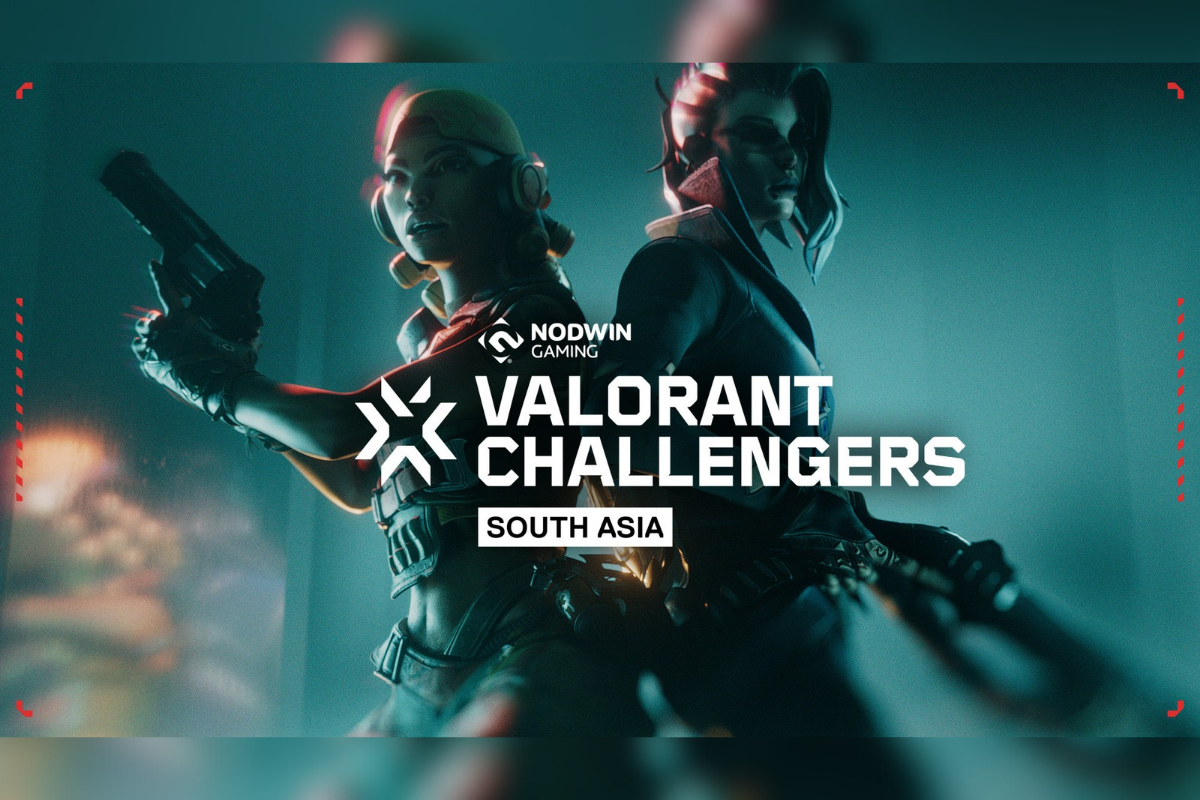
With registrations entering their final phase, NODWIN Gaming, in partnership with Riot Games, is set to kick off the broadcast phase of VALORANT Challengers South Asia (VCSA) 2026, marking the start of another high-stakes competitive season in the region.
The official VCSA 2026 broadcast will stream live on the NODWIN Gaming and Valorant Esports South Asia YouTube channels, bringing fans across South Asia closer to the region’s top VALORANT talent as teams begin their Split 1 campaigns.
Registrations for Split 1 remain open until March 4, 2026, inviting eligible teams across South Asia to compete in the region’s premier VALORANT circuit—the official pathway for teams aiming to reach the VCT Last Chance Qualifier (LCQ).
Register here: https://bit.ly/VCSA2026
Season Overview
The 2026 season introduces a refined multi-stage competitive structure, featuring Open Qualifiers, two Splits, Promotion & Relegation, and a culminating Grand Final to crown the regional champions.
Key Dates – Split 1
-
Registration Window: Till March 4, 2026
-
Open Qualifiers: March 7 – March 11, 2026
-
Split 1 Broadcast Begins: March 16, 2026
-
Split 1 Playoffs: April 8 – 9, 2026
Eligibility Requirements
-
Minimum Rank: Immortal 1 and above (V25 Act 6)
-
Regions: India, Bangladesh, Sri Lanka, Nepal, Bhutan, Afghanistan & Maldives
-
Premier Team Seeding: Based on V25 Acts 4, 5 & 6
Tournament Structure Overview
Open Qualifiers & Playoffs
The competition begins with an open circuit designed to spotlight emerging talent across South Asia.
Open Qualifiers
-
Single Elimination
-
Best-of-Three (Bo3)
-
Top 10 teams advance to OQ Playoffs
OQ Playoffs
-
Double Elimination
-
Bo3
-
Top 5 teams qualify for Split 1
The top three teams from VCSA 2025 receive direct invitations to Split 1.
Split 1
Team Composition
-
5 teams from OQ Playoffs
-
3 direct invite teams
-
Total: 8 teams
Format
-
Single Round Robin
-
Bo3
-
28 matches across 14 match days
Advancement
-
Top 6 teams advance to Split 2
-
Bottom 2 teams move to Promotion & Relegation
Split 2 & Grand Finals
Split 2 will feature eight teams competing in a single round robin format. The top four will advance to the Playoff Stage, where a single-elimination bracket (Bo3, Bo5 Grand Final) will determine the VALORANT Challengers South Asia 2026 champions.
Game Changers South Asia 2026
Running alongside the main circuit, Game Changers South Asia 2026 will feature two competitive splits with open qualifiers, reinforcing inclusive growth within the region’s VALORANT ecosystem. The winner of Split 2 will advance to the Game Changers Pacific Stage.
Building on a Landmark 2025 Season
VCSA 2026 follows a record-breaking 2025 edition, where Velocity Gaming secured the VCT Ascension Pacific slot after a dominant 3–1 Grand Final victory over S8UL at the Ascension Qualifiers LAN.
The 2025 season recorded over 12 million views and peaked at 50,000+ concurrent viewers, cementing VCSA’s position as one of South Asia’s most-watched VALORANT tournaments.
With viewership at an all-time high and competitive standards rising, the 2026 season promises even greater intensity.
From the Organizers
Gautam Virk, Co-Founder & CEO, NODWIN Gaming, said:
“As we head into the broadcast phase of VCSA 2026, the excitement across the ecosystem is palpable. This circuit represents the pinnacle of competitive VALORANT in South Asia, and our structured pathway ensures that every team from open qualifiers to grand finalists earns their position through performance. After the incredible momentum of last season, we are confident that 2026 will further elevate the region’s competitive standard.”
Sukamal Pegu, Head of Esports India and South Asia, Riot Games, added:
“Competing in VCSA continues to be one of the most defining experiences for teams in South Asia. The level of competition, the scale of production, and the passion of the community make this circuit truly special. With the new season underway and the clear path connecting Tier-2 to Tier-1 already announced, we’re excited to see both established rosters and emerging contenders raise the bar even higher.”
With broadcasts set to begin and registrations closing soon, the road to VALORANT Challengers South Asia 2026 is officially underway. Teams across the region are invited to step forward and shape the next chapter of South Asian VALORANT.
The post NODWIN Gaming’s VALORANT Challengers South Asia 2026 Set for Broadcast Kickoff; Registrations Close March 4 appeared first on Eastern European Gaming | Global iGaming & Tech Intelligence Hub.
-

 iGaming7 days ago
iGaming7 days agoPRAGMATIC PLAY UNEARTHS PROGRESSIVE MULTIPLIERS IN ROLLING IN TREASURES
-

 Comatel6 days ago
Comatel6 days agoCOMATEL CELEBRARÁ UNA FIESTA PARA CIENTOS DE OPERADORES TRAS FINALIZAR EL PRIMER DÍA DE LA FERIA ESPAÑOLA, INTERAZAR
-

 Booming Games7 days ago
Booming Games7 days agoBooming Games Introduces Instastrike, the Latest Diamond Hits Trio
-

 ELA Games7 days ago
ELA Games7 days agoELA Games Powers the Reels with Retro-Electric Slot “Rapid Wild”
-

 Africa7 days ago
Africa7 days agoGaming Realms Makes South African Debut in Partnership with Hollywoodbets
-

 Alex Green Vice President Games at ZEAL7 days ago
Alex Green Vice President Games at ZEAL7 days agoWunderino Adds ZEAL’s Premium Slots as Partnership Kicks Off
-

 Blueprint Gaming7 days ago
Blueprint Gaming7 days agoNew collect modifiers and dual bonus offering star in Blueprint Gaming’s King Kong™ Splash
-

 Brasil7 days ago
Brasil7 days agoBrasil evita choque fiscal y apuestas entran en fase reputacional en LATAM



